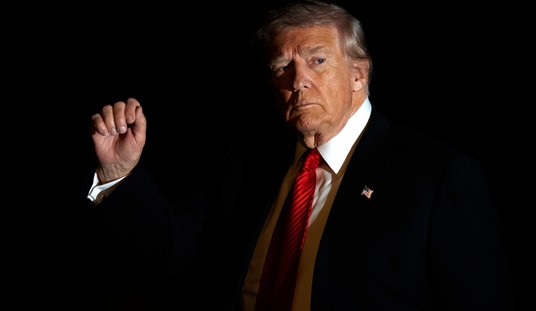
DOJ Inspector General Michael Horowitz’ report on possible FISA abuse by the FBI was expected in May or June. It will be delayed further because “reluctant key witnesses” with whom the IG had sought interviews early in the investigation, have now agreed to talk.
Fox News’ Catherine Herridge has followed this story closely and wrote that sources have told her “at least one witness outside the Justice Department and FBI started cooperating – a breakthrough that came after Attorney General William Barr ordered U.S. Attorney John Durham to lead a separate investigation into the origins” of the Russian collusion case.
The source also told Herridge that new developments required some witnesses to be reinterviewed.
Former senior DOJ official, Tom Dupree, who served as deputy assistant attorney general from 2007 to 2009, told her “the wheels of inspector general investigations move very, very slowly…Like any investigation, you talk to one person, something that person tells you sends you back … to the first person, so it can be a very extensive, exhaustive process, because you are constantly picking up leads, interviewing former sources and navigating complex questions of classified information.”
Herridge reports:
In this case, additional FISA information came to light late in the process – including October 2016 contact (first reported by The Hill and confirmed by Fox News) between a senior State Department official and a former British spy Christopher Steele, who authored the infamous and salacious anti-Trump dossier.
The State Department contact with Steele was relayed to a senior FBI official. The timeline matters because about two weeks later, the FBI and DOJ used Steele’s unverified research, paid for by the DNC and Clinton campaign, to secure a surveillance warrant against former Trump campaign adviser Carter Page. At the very least, it’s been argued, Steele’s contact with another government agency should have been a red flag for the FBI because it may have violated his confidential human source agreement.
Steele was later fired by the FBI over his media contacts before the 2016 presidential election. The Page surveillance warrant is the central issue of the DOJ IG’s review.
Although Herridge does not provide a name in her report, most likely she is discussing Kathleen Kavalec, then-Deputy Assistant Secretary of State, Department of State Bureau of European and Eurasian Affairs. She served under Victoria Nuland and covered Russia. Kavalec met with Steele ten days before the FBI applied to the FISA Court for their first warrant to spy on Page.
During this exchange, Steele told Kavalec that his client was “keen” to break the story before election day. (John Solomon’s articles can be viewed here and here.)
Kavalec made two important discoveries. First, she realized that some of the material in the dossier Steele had prepared for the FBI and the Clinton campaign was inaccurate. After a brief meeting with Steele, Kavalec was instantly aware of Steele’s agenda and she was alarmed. She prepared a memo from her meeting notes and sent it to the appropriate officials at the FBI. The memo said that Steele had told her, “Payments to those recruited are made out of the Russian Consulate in Miami.” She then wrote, “It is important to note that there is no Russian consulate in Miami.” Kavalec also said that Steele admitted his work was political.
Kavalec also determined that the story about Trump’s former personal attorney Michael Cohen’s alleged trip to Prague was false. She used the State Department portal to look at travel records. Solomon uploaded Kavalec’s handwritten notes from her meeting with Steele to Scribd which can be viewed here. The notation about Cohen can be found on page 11.
Citizens United recently obtained copies of Kavalec’s memo, through a FOIA request. The documents were immediately forwarded to the DOJ Inspector General Michael Horowitz who had not been aware that they even existed.
Citizens United learned that the memo and related documents had been retroactively labeled as classified by the FBI. They were heavily redacted. Kavalec sent the email to the FBI on October 13, 2016.
Kavalec’s testimony could be critical to the IG’s case.
The Conservative Treehouse’ “Sundance” asks and answers an important question: Why is the FBI so damned committed to this Steele Dossier?
That answer is simple. In October 2016, they needed the dossier to get the FISA warrant. They needed the 2016 FISA warrant to cover-up for all of the unauthorized and illegal surveillance activity that was already underway throughout 2016.
The Russian election interference narrative; the use of Joseph Mifsud, Stefan Halper, the London and Australian embassy personnel; Erika Thompson, Alexander Downer, U.S. DIA officials; everything around Crossfire Hurricane; and everything after to include the construct of the Steele Dossier; all of it was needed for the creation of an ‘after-the-fact‘ plausible justification to cover-up what Mike Rogers discovered in early 2016, AND the downstream unmasked records that existed in the Obama White House SCIF.
Fusion GPS was not hired in April 2016 to research Donald Trump. The intelligence community was already doing surveillance and spy operations. They already knew everything about the Trump campaign.
The Obama intelligence community needed Fusion GPS to give them a justification for pre-existing surveillance operations. Fusion fulfilled that objective by contracting for the Steele Dossier.
That’s why the FBI, and later the Mueller team, were/are so strongly committed to, and defending, the formation of the Steele Dossier and its dubious content. Once they had the dossier in hand the FBI proceeded forward for an ex post facto FISA warrant.
The goal was surveillance authority. The FBI used the Carter Page FISA application. The FBI already knew Carter Page. Essentially Carter Page was irrelevant, what they needed was the dossier in the system, and the FISA authority as justification to execute the “insurance policy.”
Let’s hope that Kavalec and at least a few others are willing to tell the truth. It will certainly save a lot of time. Generally, once one individual speaks honestly, a story falls apart rather quickly.
It’s impossible to tell when the report will be released to the public. Once Horowitz has completed the report, it must undergo a “final review” by the FBI and the DOJ to determine what information needs to be redacted.
Faster please.













Join the conversation as a VIP Member